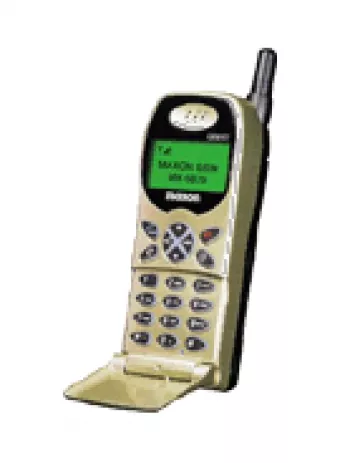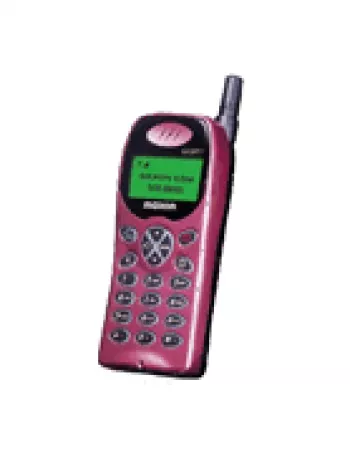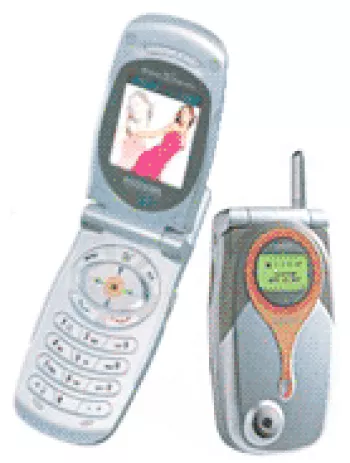
Network Capabilities
The Maxon MX-E80 is a feature phone that was intended to support GSM technology. It was designed to operate on 2G networks specifically supporting GSM 900 / 1800 / 1900 bands. This provides users with basic connectivity and voice call capabilities, although data support through GPRS is minimal with no EDGE compatibility. While this might limit the internet speed compared to modern standards, it is adequate for basic communication and simple data exchanges typical of feature phones.
Launch and Availability
Announced back in 2004, the Maxon MX-E80 was poised to be a competitive player in the market of its time. However, it was subsequently cancelled and therefore never reached consumer markets. This cancellation meant that the device remained more of a conceptual model highlighting the design and technological aspirations of that era.
Body and Design
The phone was designed for simplicity and utility, featuring a Mini-SIM slot, which was standard for phones during its conception. However, details on its dimensions and weight are not specified, reflecting the limits of historical documentation on unreleased devices. The focus for such a device would have been on portability and ease of use.
Display Characteristics
The Maxon MX-E80 included a display capable of showing 65K colors. While details about the size and resolution of the display are unspecified, this color capability was typical for enhancing the user interface visibility and offering a pleasant display experience for its time.
Memory and Storage
The phone was notably equipped with a phonebook capacity for 250 contacts, supporting detailed entries with up to 11 fields per contact. Call record functionality included storage for 30 received, dialed, and missed calls, allowing for adequate call management. It lacked external storage options like a card slot, common in feature phones, to minimize complexity and keep costs low.
Camera Features
The Maxon MX-E80 was designed with a single VGA main camera. In the early 2000s, VGA cameras provided a basic level of photographic capability, suitable for simple snapshot photography. However, video functionality was not included, aligning with the typical features of the budget phone segment during that era.
Sound and Alerts
The phone omitted several typical features such as a loudspeaker and a 3.5mm jack, focusing instead on essential functionalities. It supported vibration alerts and downloadable polyphonic ringtones, which were popular at the time for providing varied and customizable alert tones.
Communication and Connectivity
The Maxon MX-E80 did not support WLAN, Bluetooth, or positioning features, as its target market likely did not require such capabilities, therefore keeping the phone's cost down. It also lacked FM radio and had unspecified USB connectivity options, further illustrating its focus on basic utility over advanced features at the time.
Additional Features
Additional functionalities included basic messaging services supporting SMS and MMS. It came with a WAP 2.0/xHTML browser catering to very light web access, suitable for reading news or similar low-bandwidth activity. Java support allowed the phone to run additional applications and downloadable games, extending its utility beyond communication.
Battery and Power
The Maxon MX-E80 was powered by a removable Li-Ion battery, a standard in feature phones offering ease of replacement and extended device longevity. Specific details on battery life and capacity are limited, emphasizing the constraints of the device's intended market segment.
Miscellaneous Details
Information on the phone's color options and additional specifics remain unspecified. The lack of comprehensive details is in part due to the cancellation of the device, preventing deeper dives into customizability and design variations that might have appealed to diverse user preferences.
Conclusion
While the Maxon MX-E80 was never released and lacks many features compared to modern smartphones, it reflects the technological trends and consumer expectations of its era. By focusing on fundamental calling and text functionalities, it aligns with the practices of cost-conscious design and functional simplicity that were predominant in the early 2000s. The device serves as a historical footnote in mobile technology, illustrating the evolution and aspirations of mobile design.
Key Features of Maxon MX-E80
- GSM Technology: Supports GSM networks including GSM 900 / 1800 / 1900 bands.
- GPRS Support: Allows for basic mobile internet connectivity.
- Display: 65K color screen, providing vibrant colors for its time.
- Phonebook Capacity: Supports 250 contacts with up to 11 fields each.
- Call Records: Can store up to 30 received, dialed, and missed calls.
- VGA Camera: Basic photography capability with a single VGA camera.
- Messaging: Capabilities include SMS and MMS for multimedia messaging.
- Browser: WAP 2.0/xHTML browser for internet usage.
- Games: Pre-installed games with an option for downloadable ones.
- Java Support: Allows for additional applications and games.
- Removable Battery: Equipped with a removable Li-Ion battery for easy replacement.
- SIM: Uses a Mini-SIM format.
Disadvantages of Maxon MX-E80
- Cancelled launch; the device was never released in the market.
- Lack of high-speed data support; supports only GPRS, no EDGE.
- Limited display features; unspecified size and resolution.
- No expandable storage; lacks a card slot.
- Basic camera capabilities; only VGA main camera with no video recording.
- No front-facing/selfie camera.
- Absent multimedia features; no loudspeaker and no 3.5mm headphone jack.
- No modern connectivity options; lacks Bluetooth, WLAN, positioning, and radio.
- Limited USB connectivity; unspecified USB feature.
- Basic battery specifications; only specified as removable Li-Ion battery with no capacity information.
- Incomplete information on physical dimensions and weight.
View Also
More Phones
All Rights Reserved +14266 Phones © Mobilawy 2025
























